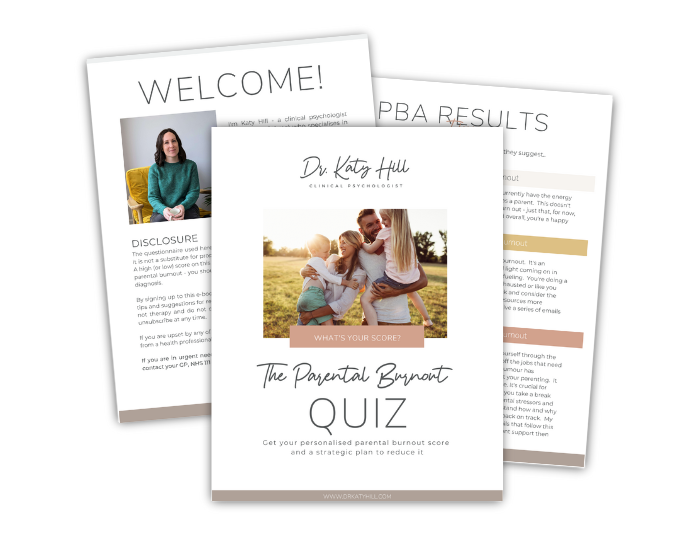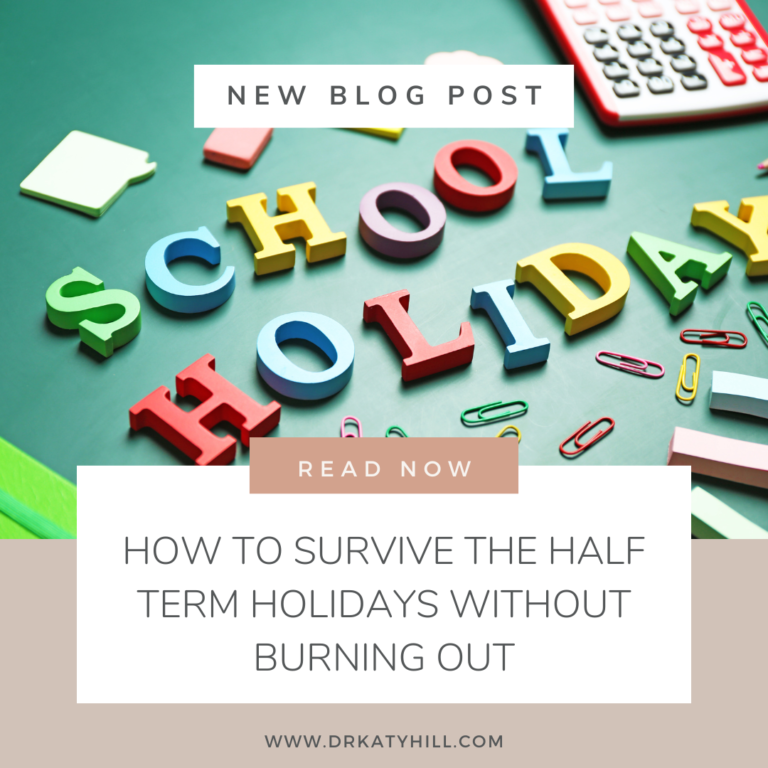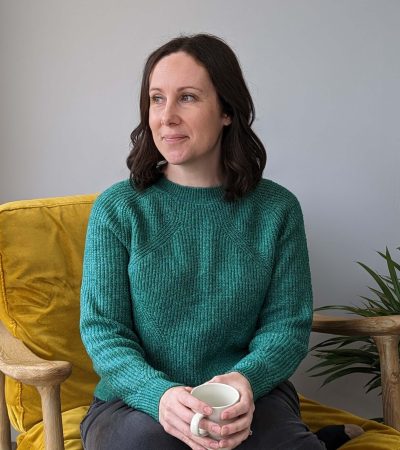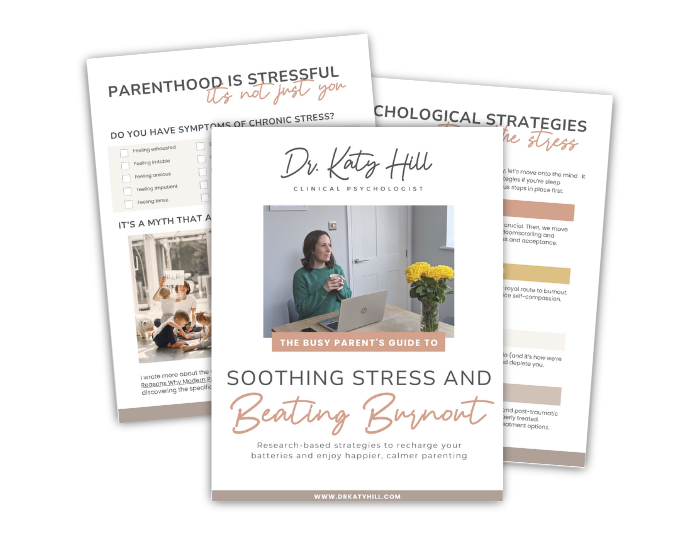It’s the October half-term holidays here next week. Unfortunately, our usual childcare plans have fallen through so I’ll be looking after our three children on my own while my husband works.
My kids are at quite different developmental stages and have wildly different personalities which often means I’m pulled in multiple directions. I find noise and social demand easily overstimulates me as a low-energy introvert and I often feel particularly stretched during the school holidays trying to keep up with their needs whilst meeting my own.
In the lead up to these holidays I’ve been asked by several different people things like “Are you doing anything exciting?” or “Are you going away for the holidays?”.
I always feel a little sheepish admitting that we’re having a quiet one, staying close to home without any big plans. I’m not sure why I feel this way, maybe because I feel there’s this unspoken expectation that we should always be doing something exciting or that busyness is a sign of good parenting. Sometimes it feels like not having plans is seen as a bit boring, or worse, as if I’m letting my kids down.
But I don’t think it’s a pressure that my parents felt when I was a kid in the 1980s and ‘90s. The pressure to constantly entertain our children is a relatively new phenomenon and one that is putting extra pressure on parents – resisting that pressure is one way to reduce your risk of parental burnout.
INTENSIVE PARENTING IS BURNING US OUT
Before the 1990s, things were different. Our half-term breaks weren’t packed with activities and outings like they often are today. We played with friends, explored the neighbourhood, or entertained ourselves with whatever we could find at home. Our parents didn’t feel the need to create a whole week’s worth of entertainment for us.
But we’re much more hands on as a generation of parents now – partly because we’re more aware of the risks that can come to children and the importance of strong attachment relationships and stimulation but also in part because of the prevailing intensive parenting culture.
Sharon Hays defined this ‘intensive’ modern style of parenting as ‘child-centred, expert-guided, emotionally absorbing, labour-intensive and financially expensive’. Parenting has shifted toward this pressure to be hyper-involved in our children’s lives and optimise every minute. And it’s a recipe for parental burnout.
social media comparison doesn't help
Something else that our parents didn’t have is social media – or even the internet (if you’re as old as me!) They didn’t have a little device in their hands bombarding them with images of families going on exotic vacations, creating elaborate crafts, or planning action-packed outings.
With a literal world of parents all looking like they’re living their best lives on holiday, it’s no wonder we can feel like we’re falling short if we don’t have similar plans or resources.
But most families aren’t living in a never-ending reel of Instagram-worthy activities. Behind the scenes, most parents are juggling work, sibling fights, and moments of overwhelm. Most of us feel pretty worn out and in need of more rest.

The Parental Burnout Quiz
Curious what your own parental burnout score is? Download the free assessment and get your score – plus expert tips on how to reduce it.
rest is important, too.
Rest is something we tend to overlook during school breaks. After weeks of early mornings, packed schedules, and the demands of school life, our kids need time to unwind. They’ve been learning, growing, and adjusting to new routines, and half-term is their chance to rest and recharge.
The same goes for us as parents. We’re trying to keep up in this intensive parenting culture but we also have cultural pressures to succeed at work, to accumulate possessions, to stay young and attractive, to have an active social life all while keeping afloat in a difficult economic climate, with political unrest and humanitarian crises screaming at us every time we scroll.
Modern life is full of pressure and flies at a pace that our poor prehistoric nervous systems were not designed to handle. We need to build in rest wherever we can.
find activities that you enjoy too
Rest doesn’t just mean lying on the sofa watching TV; rest can mean anything that feels like the opposite of pressure. I’m not suggesting you lie down all week (although, if you’re built like me, you could absolutely managed that!), I’m suggesting you find restful and recharging activities.
And that means things you enjoy – if going to soft play or baking fairy cakes drain your batteries, it’s okay to skip them. You don’t have to do things that will leave you feeling more stressed. I don’t think it’s really quality time with your kids if you’re hating every second.
Find activities that you enjoy too – maybe revisit something you loved doing when you were young and introduce it to your child. Or maybe listen to your own music or an audiobook whilst they’re colouring or making up a Lego set. And it’s a great idea to have some adult-centric recharging activities planned for the evening to balance out the more child-centric days.
low-pressure half-term activities
I know some people say ‘let them be bored’ and I agree with that… for two of my kids. Two of my children can tolerate boredom and eventually entertain themselves but I have one child who finds that much more challenging – and that’s when the moaning, meltdowns and provoking siblings really gets triggered. To prevent that, I often have a few low pressure activity ideas up my sleeve.
Here’s a few low-pressure activity ideas that will keep your kids entertained without leaving you feeling drained:
Movie Afternoon: Grab a few family-friendly films, some snacks, and huddle up for a cosy movie marathon. It’s a great way to relax together without a lot of planning or effort and to have siblings together without bickering (once they’ve finally agreed on which films they all like).
Park Trip: Pack some snacks for them and coffee for you and head to your local park. Let the kids run around and play, while you enjoy some fresh air. Once they’re off playing, I like to listen to a podcast or call a friend for a chat.
Playdate Swap: Arrange a playdate swap with another parent. The kids get a change of scenery, other children’s toys are always much more exciting than their own and you get a little time to yourself.
Quiet Creative Time: Stock up on cheap colouring or sticker books, LEGO, or puzzles. Let your kids entertain themselves while you go and have a breather in another room.
Family Clean Up: There’s one thing I’ve found that helps my children scatter and suddenly find ways to entertain themselves – I announce that we’re all going to clean the house! I then get on with it myself with my favourite music or podcast playing in my ear buds.
balancing fun, rest & Realistic expectations
As the half-term break approaches, give yourself permission to take a more relaxed approach. There’s no need to plan every moment or to feel guilty about taking it easy. The pressure to constantly entertain your children is more than any parent can manage, and it’s perfectly okay to create space for both fun and rest.
And a gentle reminder, you don’t need to constantly think about how to create “precious childhood memories” during half-term. Putting that performance pressure on yourself can make the break more stressful than it needs to be. Some of the best memories happen naturally during those simple, unplanned moments—a unexpected kitchen disco when that song comes on, a spontaneous game, or well timed fart joke. You don’t need to control or curate every second.
By embracing a slower pace, you’ll find that the break can be a time of connection, relaxation, and enjoyment for the whole family.
NEed help managing parental stress?
Parenting can be overwhelming, especially during school holidays. If you’re looking for ways to manage stress and avoid burnout, I’ve put together a free resource: “The Busy Parent’s Guide to Soothing Stress and Beating Burnout”. It includes 12 evidence-based strategies to help you navigate the demands of parenting without feeling overwhelmed.
Download your free copy here and start making small but impactful changes that will help you feel more balanced and in control.








